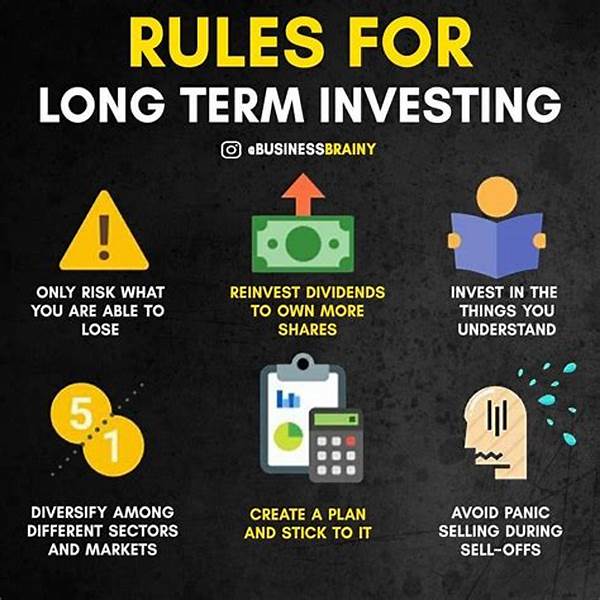Mutual Funds Vs Etfs Which Is Right For You
Mutual Funds vs ETFs: Which Is Right for You?
In today’s dynamic financial market, individual investors are presented with a plethora of choices for where to place their money. Among the most popular investment vehicles are mutual funds and exchange-traded funds (ETFs). But, when it comes to “mutual funds vs ETFs, which is right for you?”—the answer isn’t straightforward. Both have advantages and potential drawbacks, making the decision quite the conundrum for both novice and seasoned investors. Let’s dive into this intriguing debate and uncover what makes each of these investment options tick.
Read More : Dividend Stock Investing For Beginners
Mutual funds and ETFs have a similar end goal: to help investors achieve growth, income, or a combination of both through diversification. However, their structures and operations provide different experiences for the investor. Mutual funds are typically actively managed, meaning that a professional manager selects the securities that make up the fund’s portfolio. This can offer investors the convenience of expert management, but often at a higher cost. On the other hand, ETFs are usually passively managed and designed to track a specific index. This allows for greater flexibility, often with lower fees, as they trade on exchanges like regular stocks.
Understanding how mutual funds and ETFs work is crucial to determining which might be the most appropriate addition to your investment portfolio. Over recent years, we’ve seen a shift toward ETFs because of their lower cost, tax efficiency, and trading simplicity. But for those who value the expertise of seasoned money managers, mutual funds can provide peace of mind. So, “mutual funds vs ETFs, which is right for you?” may indeed depend on how you value management style, associated costs, buying frequency, and tax considerations.
Despite these differences, mutual funds and ETFs share similarities that can make them appealing. Both types provide access to a diverse array of underlying assets such as stocks, bonds, or combinations thereof. This diversification can reduce risk in an investment portfolio. Investors can select funds that align with their risk tolerance and financial goals, whether they aim for capital appreciation, income, or both. Whether through the active management of mutual funds or the passive approach of ETFs, there are options aplenty for strategic, diversified investment.
Evaluating Your Investment Goals
When venturing into the investment world, understanding your financial goals is the cornerstone of any decision. The question, “mutual funds vs ETFs, which is right for you?” can largely be answered by introspective evaluation of these financial aspirations and personal preferences. Are you saving for retirement, a child’s education, or simply trying to grow your investment portfolio? Each goal might lead you to a different investment strategy.
Mutual funds might be suitable if you seek professional management. Offering the potential for higher returns due to active trading, they’re ideal for investors who are willing to pay a bit more for the hopes of outperforming the market. However, this benefit comes with caveats: higher fees and often less tax efficiency. For individuals preferring to rely on data and patterns, rather than the whims of human decision-making, ETFs might be the better choice. Their lower fees and tax efficiencies appeal to those who seek to minimize costs while maintaining flexibility.
Flexibility is another critical factor. ETFs can be bought and sold throughout the trading day, much like stocks, providing investors the opportunity for quick decisions. Mutual funds, conversely, only allow for transactions at the market’s close, which can sometimes leave investors feeling constrained. When making the call on “mutual funds vs ETFs which is right for you,” flexibility might be the decisive factor.
In summary, consider your investment horizon, risk tolerance, and financial objectives to make an informed choice. We often hear that investment is both an art and a science; this holds especially true when determining your approach between mutual funds and ETFs. Remember, the better suited your investment vehicle is to your personal characteristics and goals, the more satisfied and successful you may be in the long run.
Understanding the Nuances of Mutual Funds and ETFs
The Flexibility of ETFs
ETFs, short for exchange-traded funds, have gained immense popularity for their unique attributes. When exploring, “mutual funds vs ETFs which is right for you?” it’s essential to understand what differentiates ETFs significantly in terms of flexibility. Unlike mutual funds, ETFs are traded like individual stocks on stock exchanges, providing day-long liquidity that can be enticing for active traders and investors who prefer real-time decision-making.
The Management of Mutual Funds
Contrastingly, mutual funds offer active management, which remains their hallmark. They promise to beat market averages, which can be attractive for those who prefer a hands-off approach. If the idea of relying on experienced fund managers to adjust your portfolio according to market conditions sounds appealing, mutual funds may be the answer for the ever-puzzling question of which is better—mutual funds vs ETFs.
By sticking to a structured question of “mutual funds vs ETFs which is right for you,” you can begin to see nuances and align them with your expectations, allowing you to determine which investment suits your unique needs. Many find that a combination of both can balance the potential returns of active management with the low-cost advantages of passive management.
Potential Topics Related to Mutual Funds vs. ETFs
Choosing the Right Investment Strategy
Navigating the investment sphere requires a solid understanding of your options: mutual funds and ETFs, and how they align with your financial strategy. Whether you opt for one, both, or a hybrid approach, it’s crucial to weigh the factors of cost, flexibility, and management level. Each carries unique features that cater to different types of investors.
Having cracked the surface of mutual funds versus ETFs, which is right for you? Remember that the landscape of investing is often personal. By contemplating both functional and emotional considerations, alongside financial ones, you lay the groundwork for a well-rounded portfolio. Ultimately, understanding your needs enables you to make astute investment choices.
Choosing between mutual funds and ETFs requires more than a superficial comparison. It’s about aligning your choice with your financial aspirations and understanding how different options may fit your lifestyle and financial plan. Whether you value hands-on management or simplicity and low cost, there’s an investment vehicle tailored just for you.
Keep in mind that the road to wealth is paved with informed decisions and well-calculated risks. Whether you lean towards the hands-on mutual funds or the agile ETFs, being informed is the first step on your journey to financial wisdom. Leverage your insight into “mutual funds vs ETFs which is right for you,” and propel your path toward successful investing.



